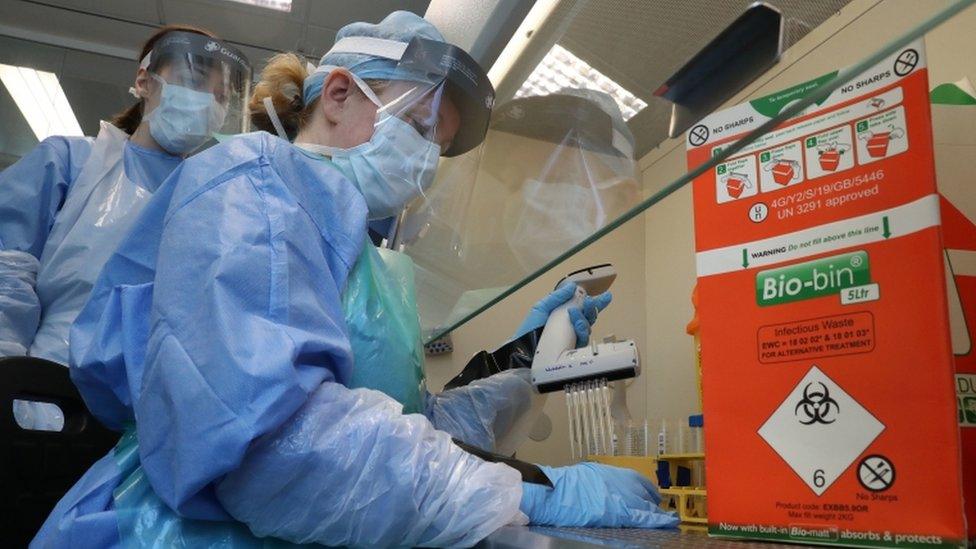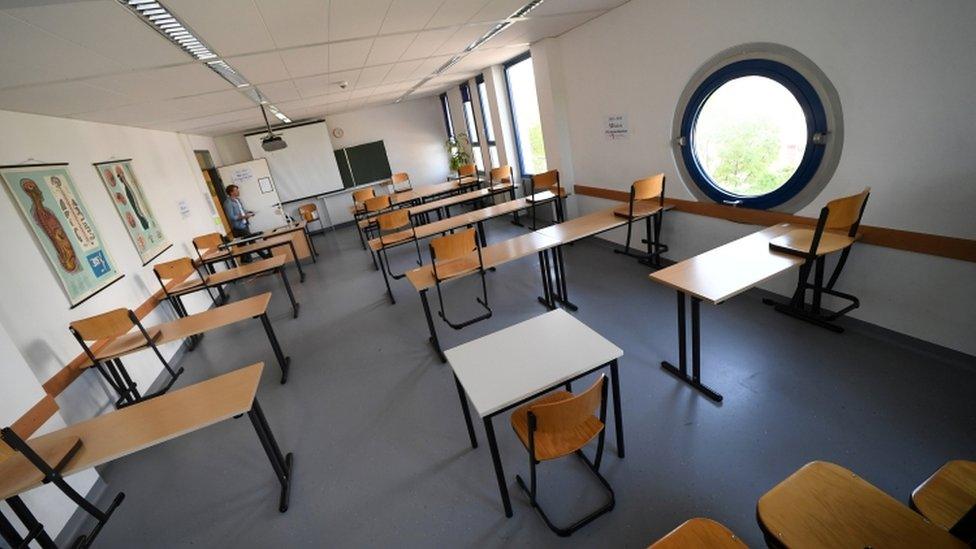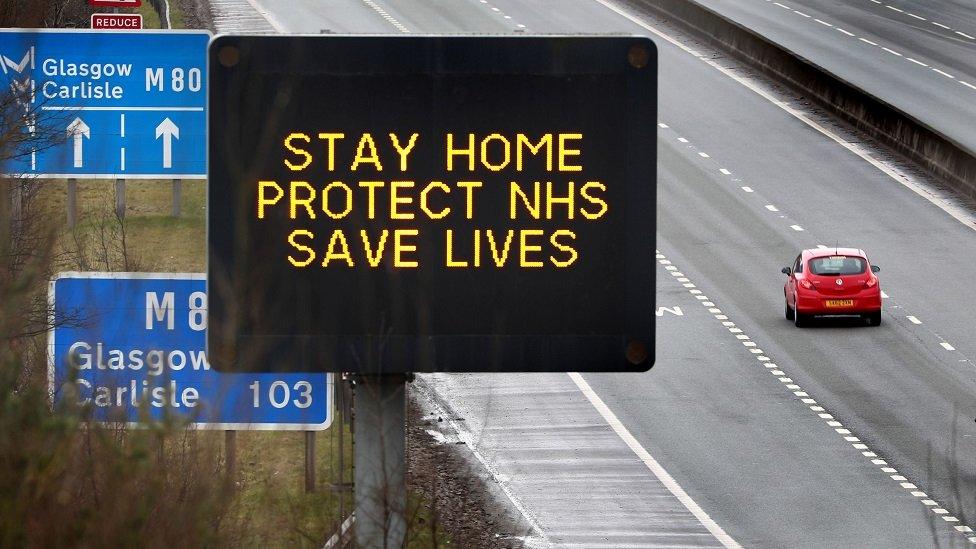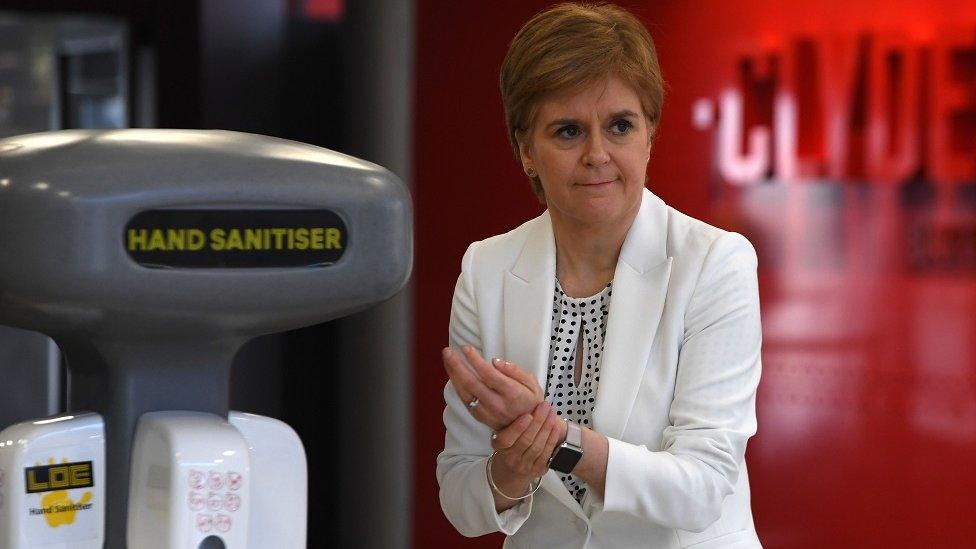What is Scotland's strategy for easing the coronavirus lockdown?
- Published

A coronavirus testing "superlab" has opened in Glasgow
The Scottish government has published a paper outlining its thinking on a potential strategy for lifting the country's coronavirus lockdown.
The paper states categorically that "now is not the right time" to relax the UK-wide lockdown that was imposed on 23 March, and does not speculate on when this might begin to happen.
But it says a number of options will be considered over the next few weeks, with decisions on what to do - and when to do it - based on the scientific evidence and expert advice that is available.
These options are likely to include the easing of restrictions in a phased manner, which could see different parts of the economy opened up sector by sector, or having different restrictions in different areas depending on how the pandemic is progressing.
Options will also be considered for different population groups - for example the elderly and people with underlying health conditions, who will almost certainly continue to be shielded as they are now.
The paper says the government's approach will aim to:
Suppress the virus through compliance with physical distancing and hygiene measures
Care for those who need it, whether infected by the virus or not
Support people, business and organisations affected by the crisis
Recover to a "new normal", carefully easing restrictions when safe to do so while maintaining necessary measures
Protect against this and future pandemics, including through effective monitoring, testing, contact tracing and isolation
Renew the country by building a "fairer and more sustainable economy and society"
It says that it would be unrealistic to expect everything to be normal any time soon, but that it is equally clear that we cannot stay in complete lockdown indefinitely.
First Minister Nicola Sturgeon says careful balances will need to struck for some work and schools to reopen
So it proposes a "new reality" where some measures are relaxed while others stay in force until scientists manage to develop new vaccines and treatments - which is likely to still be many months away at best, and there is "no guarantee of quick success nor of permanent success".
This could mean schools and many businesses reopening so that society can begin to function again, and could see some outdoor activities allowed to return before indoor activities.
But classrooms and workplaces may have to be redesigned to ensure social distancing rules can still be followed - so there might not be room for every pupil to attend school on the same day, for example.

School classrooms could be redesigned to make social distancing possible, like in this one in Dortmund
People will also still be told to stay at home if they are showing any potential symptoms of the virus, and good hand and cough hygiene will have to become "fundamental habits" for everyone.
It also seems likely that places where large numbers of people gather in close proximity to each other - for example in pubs or at major public events - will continue to be closed completely or heavily restricted for some time to come.
The paper warns that "each one of us will have to adapt to this as the new normal, at least until we are sure that we can be more protected by a vaccine or treatment."
And it says that, if these measures are not successful in containing the spread of the virus, then a full lockdown would have to be re-imposed, potentially at very short notice.
It adds: "While we will do our best to avoid this, it is possible that such a cycle may happen more than once until we reach a point when we have in place an effective vaccine."
The paper also makes clear that the Scottish government wants to work alongside the UK government and the other devolved administrations on a "collective decision-making process" and in areas such as border control and health surveillance of people coming into the UK.
But it says the Scottish government would consider taking a separate course of action if it was felt necessary to meet Scotland's specific needs and circumstances.

A SIMPLE GUIDE: How do I protect myself?
TESTING: Can I get tested for coronavirus?
AVOIDING CONTACT: The rules on self-isolation and exercise

- Published17 April 2020

- Published23 April 2020
